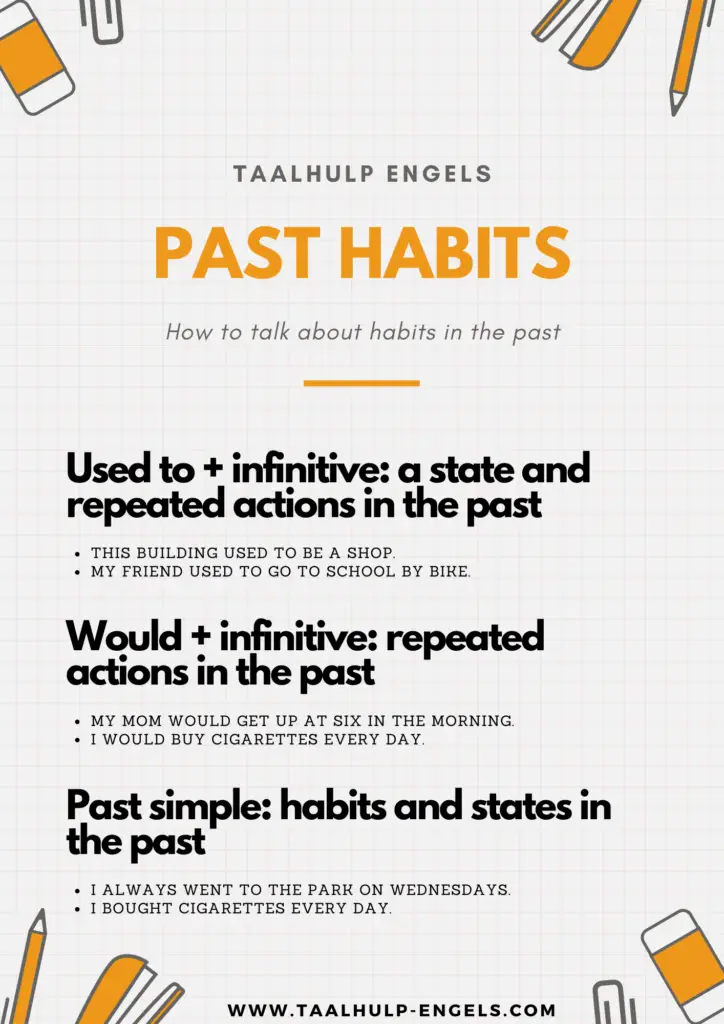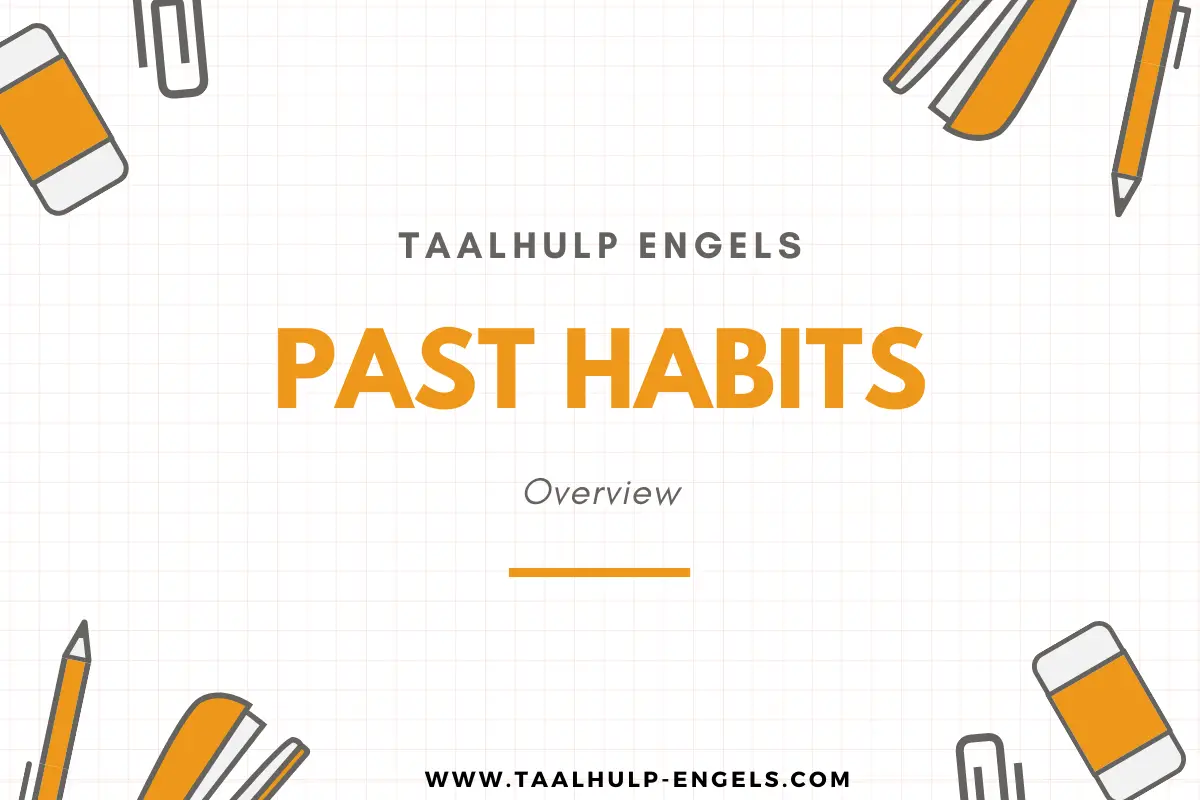Past habits are used to talk about repeated actions or states in the past that are no longer happening. In this article, you have a complete overview of what is meant by past habits or habits in the past and you’ll find out how to use and form this grammatical structure. Take a look at the following examples:
This used to be a parking lot.
He would get up at six every morning.
I always went to school by bike.
Past habits
Past habits in English are used to talk about repeated actions or states in the past that are no longer true today. It’s important that the habit/state you are talking about is different now from what it used to be in the past.

Past habits form
Talking about past habits is fairly easy and there are three ways to do this:

Used to + infinitive
To talk about a particular state in the past, you use ‘used to + infinitive’. You can also use this structure to talk about habits in the past, so about repeated actions that are not happening anymore.
| Positive | Negative | Questions |
|---|---|---|
| This building used to be a shop. | This building didn’t use to be a shop. | Did this building use to be a shop? |
| My friend used to go to school by bike. | My friend didn’t use to go to school by bike. | Did my friend use to go to school by bike? |
Would + infinitive
You should use ‘would + infinitive’ to talk about repeated actions in the past. It’s important that these habits are not happening anymore. ‘Would + infinitive’ is not used to talk about a particular state in the past. Keep in mind that ‘would + infinitive’ is not used in the negative form.
| Positive | Negative | Questions |
|---|---|---|
| My mom would get up at six in the morning. | / | Would my mom get up at six in the morning? |
| I would buy cigarettes every day. | / | Would I buy cigarettes every day? |
Past simple
The past simple is also used to talk about habits and states in the past. The difference between using the past simple and ‘used to + infinitive’ and ‘would + infinitive’ is that you don’t stress the fact that it is a repeated action or that the action was going on. When using the past simple, it’s also less clear if the state or habit is over.
| Positive | Negative | Questions |
|---|---|---|
| I always went to the park on Wednesdays. | I didn’t always go to the park on Wednesdays. | Did I always go to the park on Wednesdays? |
| I bought cigarettes every day. | I didn’t buy cigarettes every day. | Did I buy cigarettes every day? |


Exercises
- Past Habits Exercise 1
- Past Habits Exercise 2
- Past Habits Exercise 3
- Past Habits Exercise 4
- Past Habits Exercise 5


